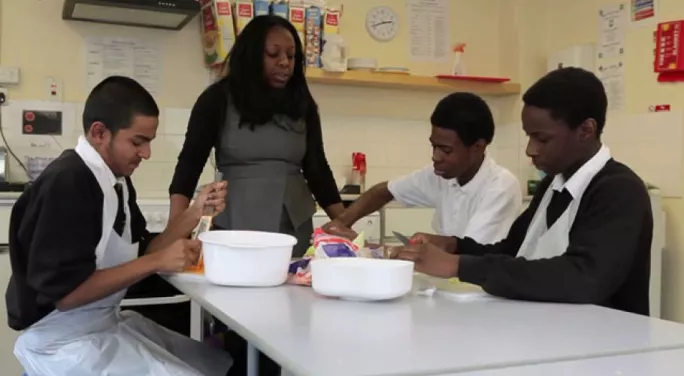How to put an end to SEN children becoming ‘forever failures’
England is implementing a new code of practice for special educational needs and disability (Send) from this September - but what impact will it have?
Professor Sonia Blandford, founder and CEO of charity Achievement for All 3As, says the changes should be significant. She explains that a lack of clarity and ambition around the needs of children with special needs has become commonplace and that this frequently leads to confrontation among the many people involved in these pupils’ lives. The Send reforms aim to provide a solution to this situation.
The code of practice essentially aims to join up help across education, health and care, from birth to age 25, with support to be offered at the earliest possible opportunity. Schools, early years and post-16 settings will need to devise clear systems for identification, assessment, monitoring and securing appropriate support for children with special educational needs. The code also requires schools to fully involve parents and carers in decisions about their support and what children want to achieve.
Professor Blandford believes the new Send code will instigate a welcome new approach.
“Parents won’t find themselves being shunted from ‘pillar to post’ retelling their stories over and over as their child experiences a limited educational experience due to lack of appropriate and oftentimes adversarial support,” she says.
The code also addresses the limited ambition that, Professor Blandford explains, often hampers the prospects of these children. Her charity’s experiences with 108,000 children and young people have shown that they are often capable of much more than might have been expected. With the right support, they may even do better than their peers.
Currently, the situation does not provide that support and the children suffer.
“Alarmingly, the Department for Education data demonstrates significant underachievement, with only half of Key Stage 2 SEN pupils achieving the same as those without SEN and only one in five pupils with SEN gaining five GCSEs at Grade A*-C,” says Professor Blandford.
This begins what she describes as “the cycle of forever failures” - the young people consigned to perpetual unemployment.
The new Send code should help avoid this, she says.
“It places an emphasis on working with parents and carers to agree and review outcomes and achievements, rather than focusing on the number of hours or resources given to a child, which in practice has meant segregating SEN children and young people,” she explains.
What does all this mean for classroom teachers, lecturers and other practitioners in practice?
“Enabling every child to be the best they can be regardless of background, challenge or need should be at the heart of every lesson - no mean feat,” says Professor Blandford. “Each and every one of us in the teaching profession must take responsibility for those who find learning difficult.”
The results, she believes, would be well worth the effort.
“There will be improved outcomes for all children and young people, especially those with special educational needs and disabilities; engaged parents and carers; a reduction in absences and exclusions and, ultimately, a reduction in the number of young people who at 16-24 find themselves not in employment, education and training.”
Or, put more simply, “an end to the ‘forever failures’ that the system has created”.
Keep reading for just £1 per month
You've reached your limit of free articles this month. Subscribe for £1 per month for three months and get:
- Unlimited access to all Tes magazine content
- Exclusive subscriber-only stories
- Award-winning email newsletters




